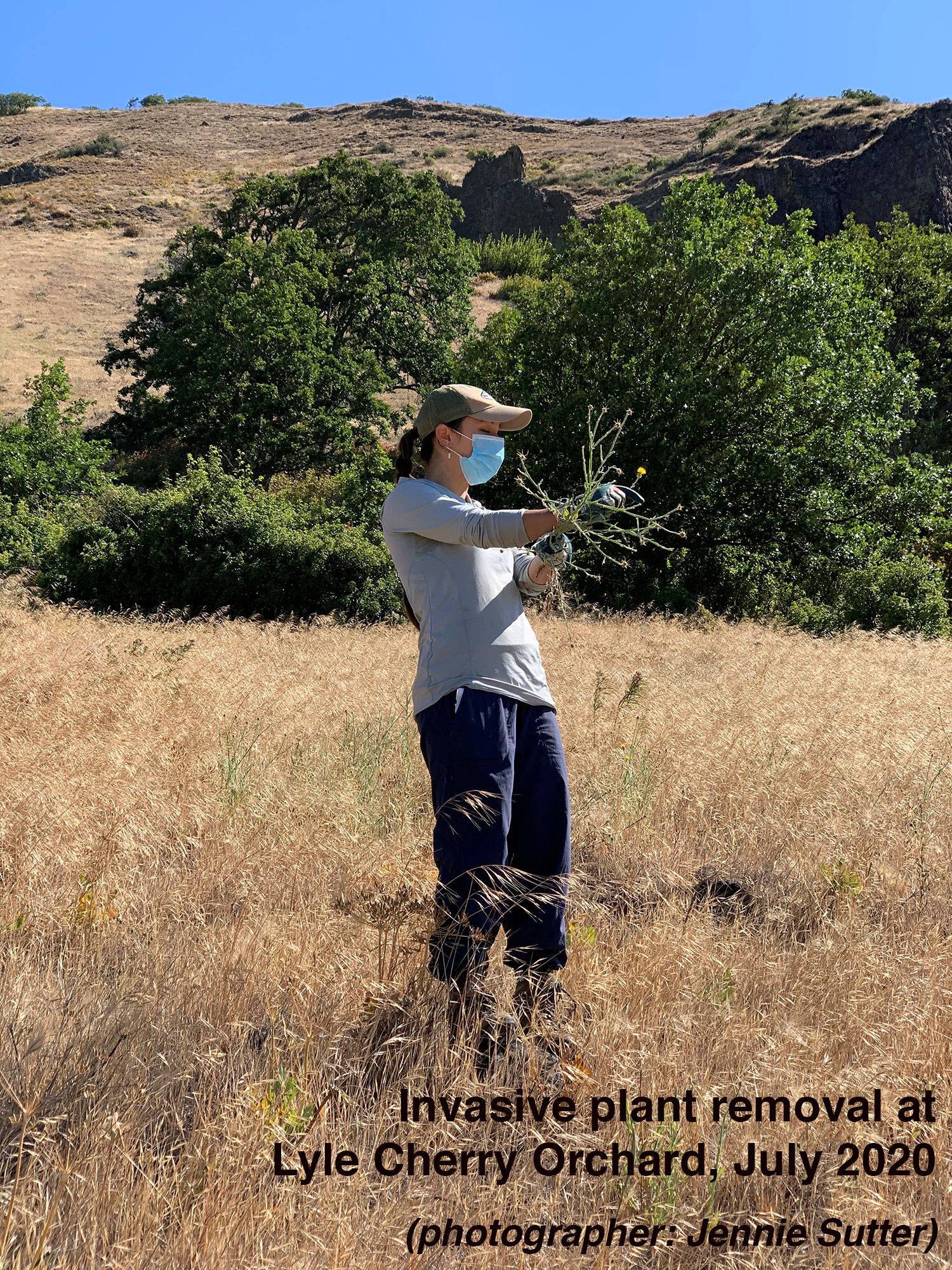 By Frances Ambrose Fischer, Land Trust Associate
By Frances Ambrose Fischer, Land Trust Associate
Mika Barrett, Stewardship Volunteer Coordinator
Sara Woods, Land Trust Stewardship Coordinator
When we returned in March to assess our water cache, the jugs were scattered about, slashed and emptied, littering the oak groves. A cougar had destroyed the jugs for the water inside. A free drink for the cougar, days of lost work and an unexpected clean-up job for us. We were feeling defeated but joked about how thirsty the cougar must have been as we hiked out with jugs strapped to our packs.
The cougar could not have known that the jugs of water were essential to our spring restoration plan. Friends’ volunteers have spent countless hours pulling weeds and planting native species in their place. Restoring native vegetation would improve foraging habitat for deer and other herbivores, nourishing the prey that sustains cougars.
We have had other stewardship setbacks due to wildlife. Native seedlings we’ve planted were later munched down by deer, and camas bulbs have been dug up and eaten by squirrels. We were attempting to improve the landscape but it felt like nature was working against us. In reality, though, wildlife just exists in the same space as our restoration work.
A modest return to stewardship work parties
Because of the coronavirus pandemic, our March, April, and May work parties were canceled, with over 1,000 hours of volunteer effort lost. But like the cougar, the ecosystem will continue as it always has. On one hand, it’s unfortunate because weeds are returning without us there to pull them. But with no one hiking trails or visiting these natural areas, the ecosystems will follow their own restoration plan. Native plants will grow unhindered by trampling from visitors trying to take photos. Falcons will nest undisturbed on the cliffs. Deer will graze in peace until cougars come out of hiding, well hydrated.During that time, Friends staff have been diligently working on adapting the stewardship program to safely facilitate volunteer activities. July has been a big month for the Columbia Gorge as we’ve resumed stewardship work parties after four months of suspending group activities. Friends established a multi-level approach in resuming stewardship work with considerations to Executive orders, partnerships with land managers, and collaboration with Gorge trail groups. Currently, stewardship work parties are limited to small groups of experienced volunteers. We hope to continue facilitating volunteer stewardship work parties in the Oregon and Washington Gorge, but will follow suite with the ever-changing nature of the pandemic.
As we mourn the loss of the time we could be spending stewarding the Gorge, let us be comforted that this year the outdoors will do its own work while we stay home.

